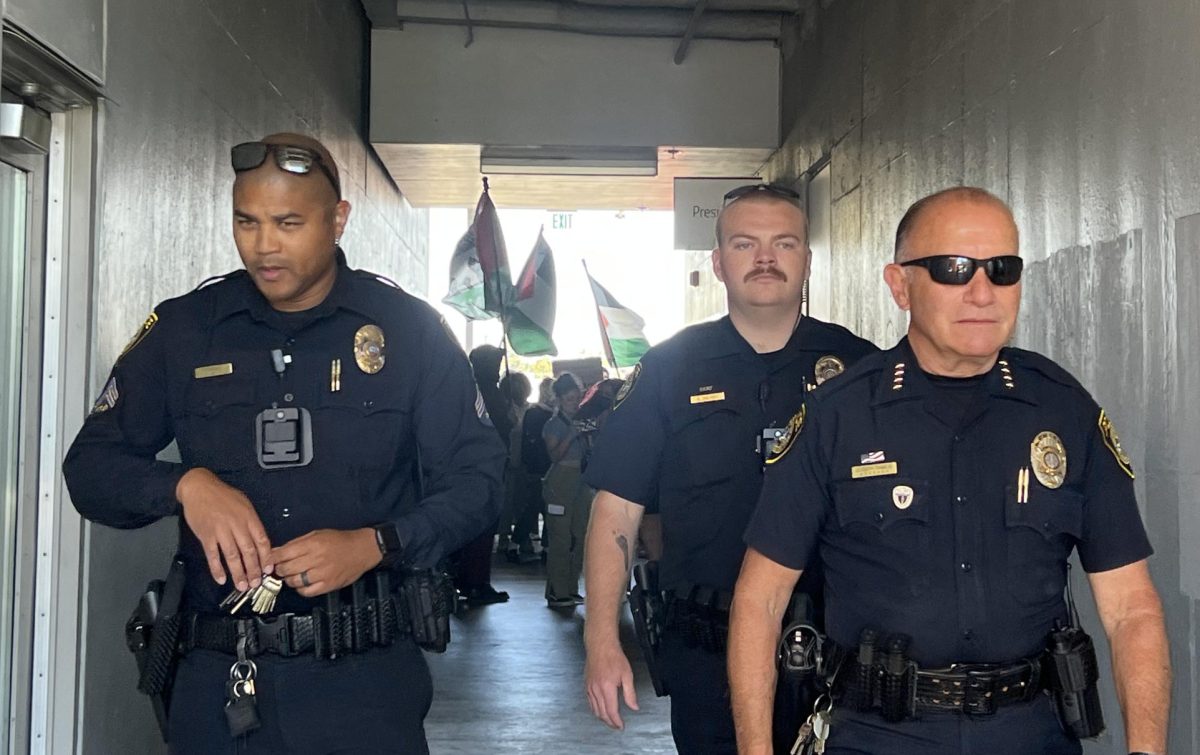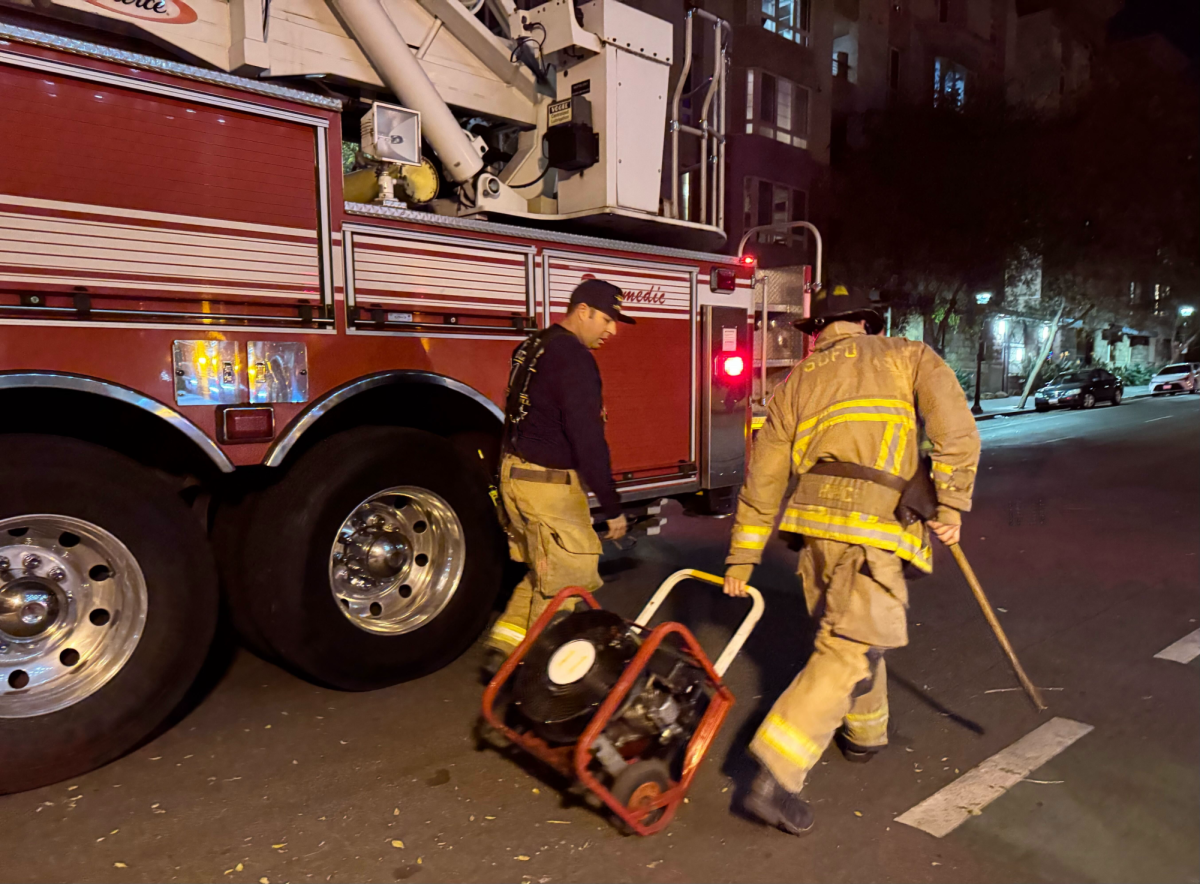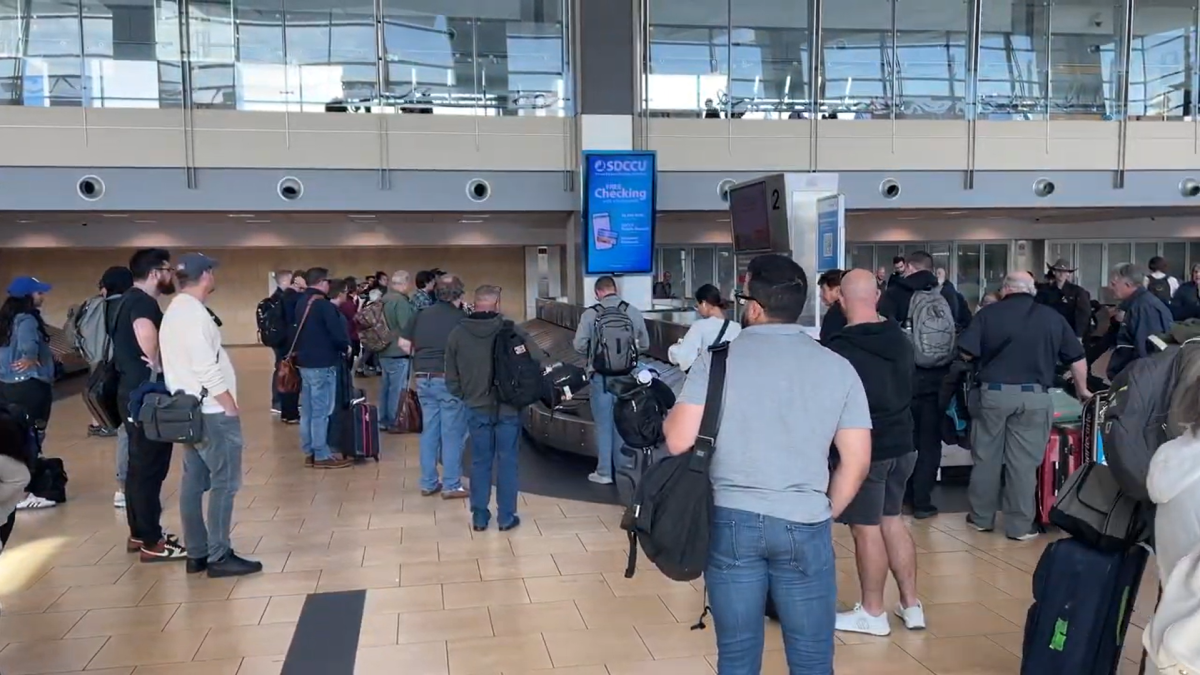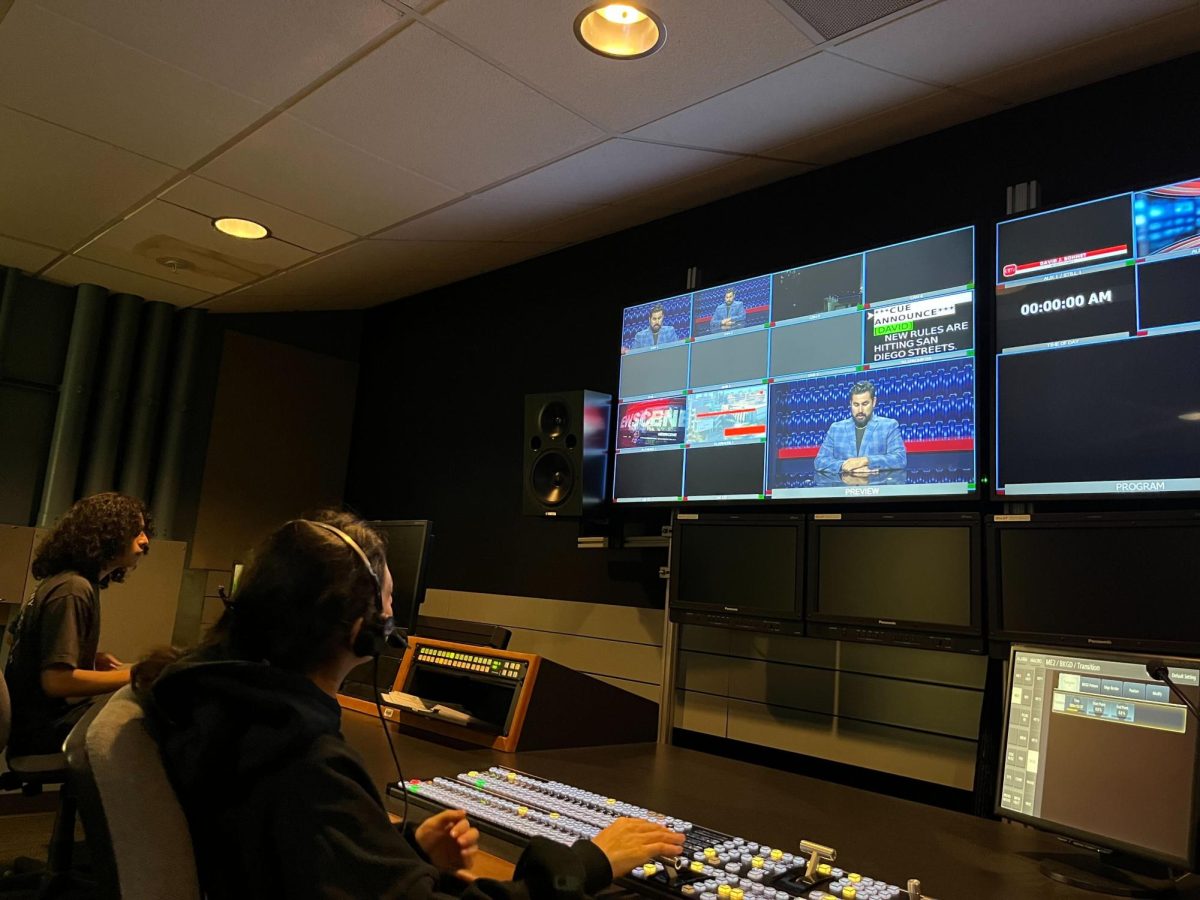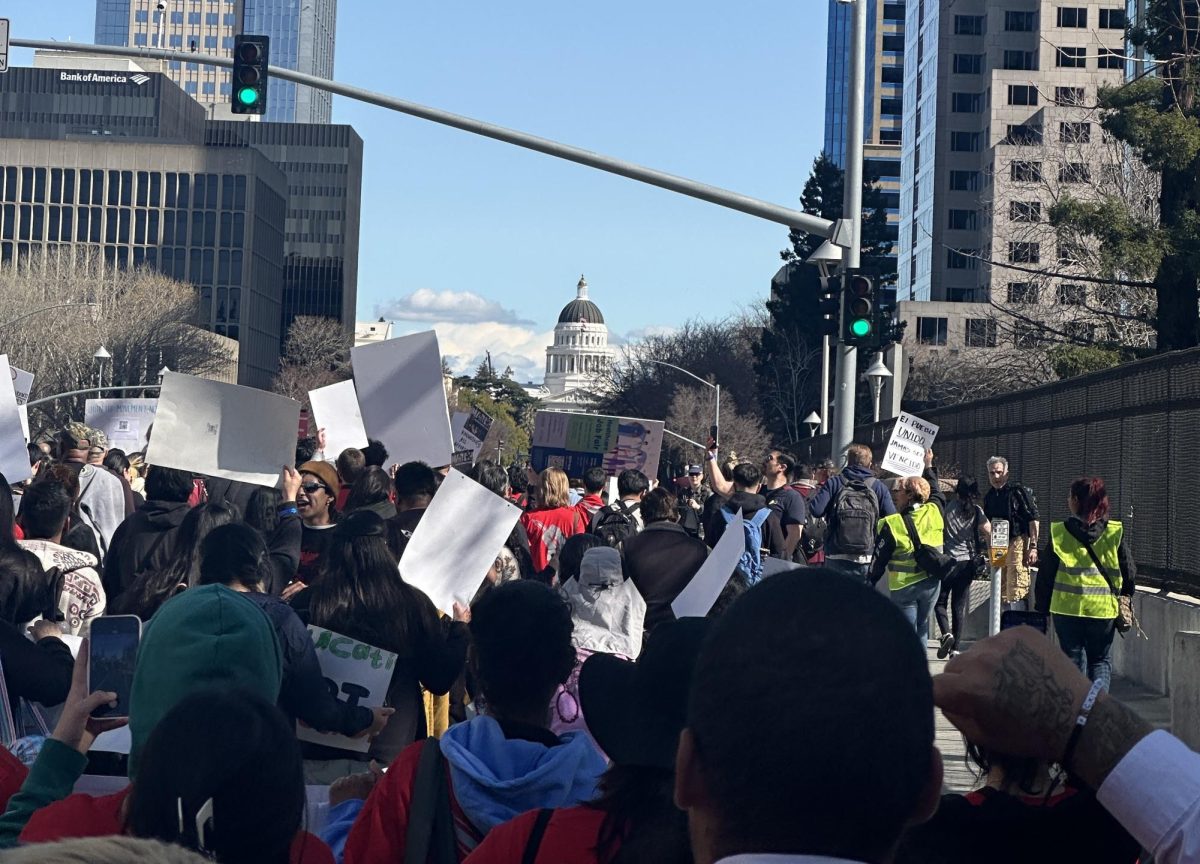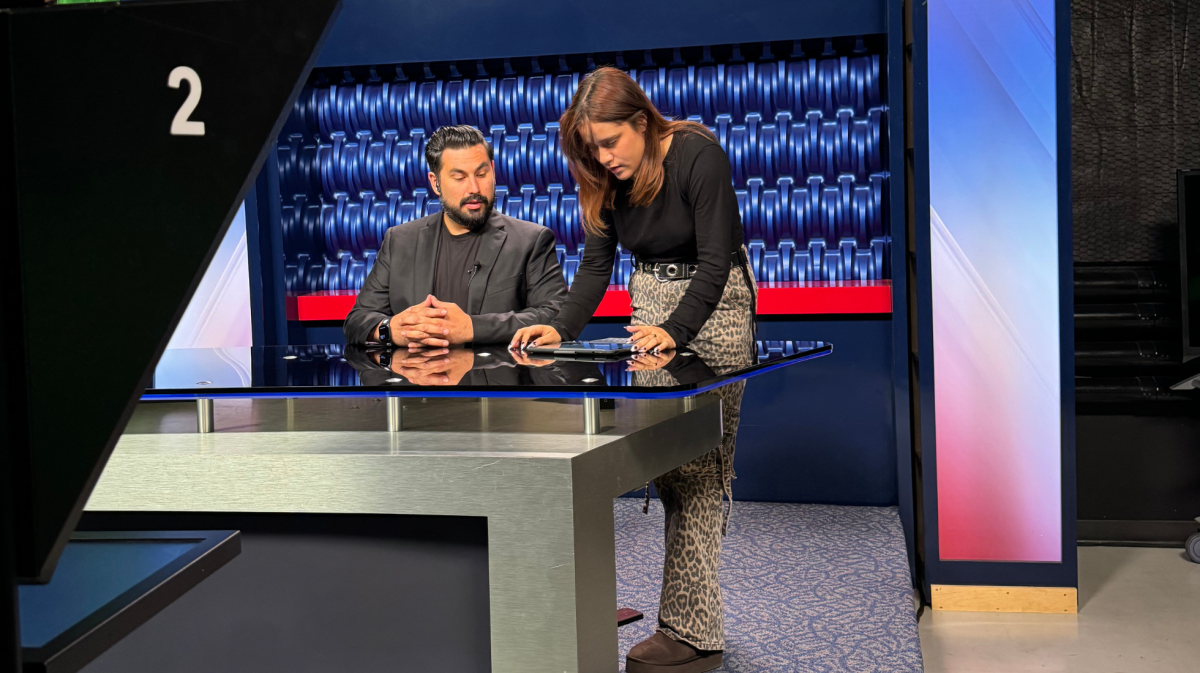“I feel like we should talk about what happened to Diana,” professor Kelly Mayhew said, as she addressed the crowd of students gathered at Saville Theatre on Oct. 21 to join “We Are Diana: A Forum on Domestic Violence” put together by the on-campus Visionary Feminists Club.
Mayhew, along with Naomi Santa Cruz, a survivor of domestic abuse and the creator of the Visionary Feminists Club, professor Sarah Pitcher, and Leah Copeland from local sexuality boutique The Rubber Rose, directed a dialogue on domestic violence and abuse.
“In women’s lives every day this is not a rare, unique, or isolated case,” Mayhew said. “It’s a part of U.S. society, it’s a part of who we are, and it’s a part of how we define our gender roles. We are all Diana Gonzalez.”
Mayhew began the forum by discussing traditional roles of femininity and masculinity in society, stressing the importance of reevaluating the tension between dominance and submission in any relationship.
“A relationship based on fear and dominance,” said Mayhew, “is not a loving relationship.”
Santa Cruz reviewed the dynamics of what constitutes domestic abuse and outlined red flags that include fear of one’s partner, heightened or unusual jealousy, and the belief that one deserves to be hurt.
She added that statistics on domestic abuse are staggering: Women between the ages 16 and 24 are three times as vulnerable to engage in an abusive relationship and that 70 percent of rapes nationwide are reportedly college women.
Copeland said she opened The Rubber Rose shop in 2006 with the purpose of creating a safe space to explore one’s sexuality. She introduced The Clothesline Project, a demonstration that features personalized T-shirts that survivors of domestic violence have written on about their experiences strung along a clothesline.
“We are expressing loud and clear that we will not be broken again, we are no longer ashamed, we are no longer afraid, and most importantly we will no longer be silent,”
Caughlin said.
The row of T-shirts was strung along the stairway outside Saville Theatre in efforts of making those voices who had previously been silenced by domestic abuse known.
Copeland spoke of empowerment as she explained what she saw as the key issue in intimate yet abusive relationships: leaving the abuser.
“What’s most difficult is actually staying away,” said Copeland.
In addition to the panel’s discussion, booths were set up by organizations such as the Center for Community Solution, which provided literature for those seeking help from domestic violent situations.

